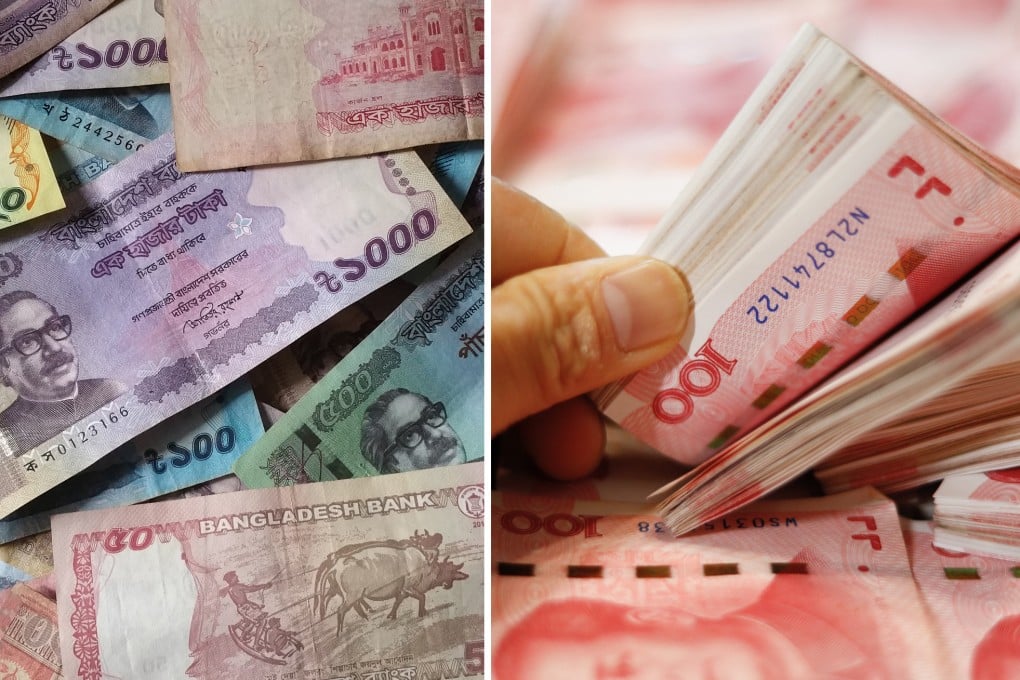Even as Bangladesh bolsters yuan trade, its dependence on US dollar weighs on foreign reserves
- Seeking to diversify its forex holdings away from the strengthening US dollar, Bangladesh’s central bank lets financial institutions settle trade deals with China in the yuan
- But even with this new currency option, some analysts fail to see much potential, as Bangladesh’s imports from China vastly outweigh its exports to China

Bangladesh is broadening its use of China’s yuan as an alternative to the US dollar in international transactions, but economists say the shift is unlikely to shake the southern Asian nation’s reliance on the dollar.
Earlier this month, Bangladesh’s central bank allowed so-called authorised dealer (AD) banks – which are licensed to buy and sell foreign currencies – to settle trade deals with China in the yuan. This expands on its 2018 decision to allow such local banks to open foreign-currency clearing accounts with the central bank in yuan.
Now, banks can maintain an account in yuan with their corresponding branches abroad to settle international payments – a move intended to help preserve Bangladesh’s dwindling foreign reserves.
“This is a good move for Bangladesh, and we are happy that China has accepted,” said Faruque Hassan, president of the Bangladesh Garment Manufacturers and Exporters Association. “Due to the high cost of commodities, and high freight charges, the foreign reserves of many countries are declining.”
Developing countries such as Pakistan, Bangladesh and Sri Lanka have seen their foreign reserves shrink as they defend their currencies against a strengthening US dollar.
